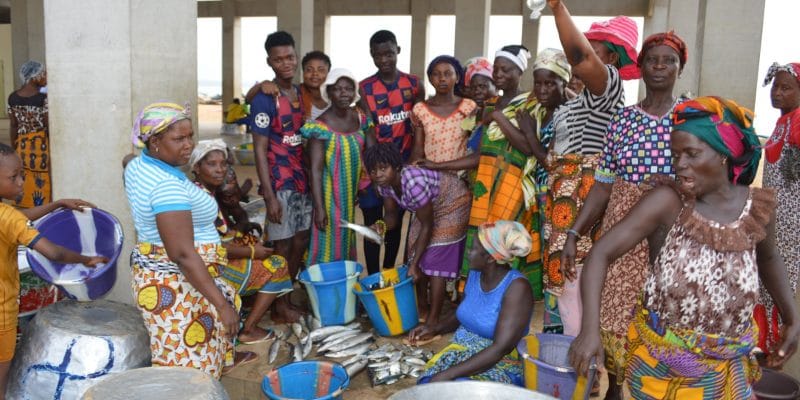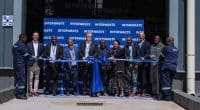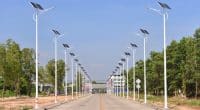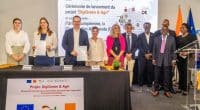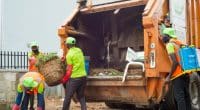The Sassandra fish wholesalers in the south-west of Ivory Coast are now better equipped for the sustainable and ecological management of post-fishing activities. They were built for this purpose on the 21st, of November 2020 by the Food and Agriculture Organization of the United Nations (FAO), on the occasion of the activities marking the celebration of World Fisheries Day.
The Ivorian government and the Food and Agriculture Organization of the United Nations (FAO) want to reduce the ecological impact of post-fishing activities in Sassandra, a coastal town in south-west Ivory Coast. Hence the celebration, in this locality, the 21st, November 2020, of the World Fisheries Day under the theme: “the impact of mangroves on artisanal fisheries in Sassandra”. It was notably a question of introducing eco-responsible practices and tools in the activity of the mareyeuses (women who buy fishing products at the landing stages to resell them to fish merchants, editor’s note) and fish smokers, two categories that make up 60% of the nearly 70,000 jobs generated by the artisanal fishing sector in Ivory Coast.
A smoking method that is harmful to the mangrove and the reproduction of fish
For both partners, it seems urgent to include the preservation of the ecosystem in the fish value chain, which provides two thirds of all animal proteins. According to studies carried out by a team of researchers from the University Félix-Houphouët-Boigny of Abidjan Cocody, the abusive use of fuels consisting mainly of wood cut from the mangroves has a considerable impact on the ecosystem and consequently on the sustainability of natural resources, as it destroys fish breeding areas. In addition, smoking 1 kilogram of fish requires 5 kilograms of wood, not counting the massive emission of CO2 and polycyclic aromatic hydrocarbons, carcinogenic compounds for the consumer that are deposited directly on traditionally smoked fish.
The ecological education of the Sassandra fish ponds is part of the executive phase of the Coastal Fisheries Initiative Project – West Africa (IPCAO). Implemented in three West African countries (Cape Verde, Senegal and Ivory Coast), “it brings together United Nations agencies and international nature conservation organisations to improve fisheries management and protect marine biodiversity in coastal areas,” explains the IPCAO project administrator at the FAO, Aboubakar Koné.
Boris Ngounou

